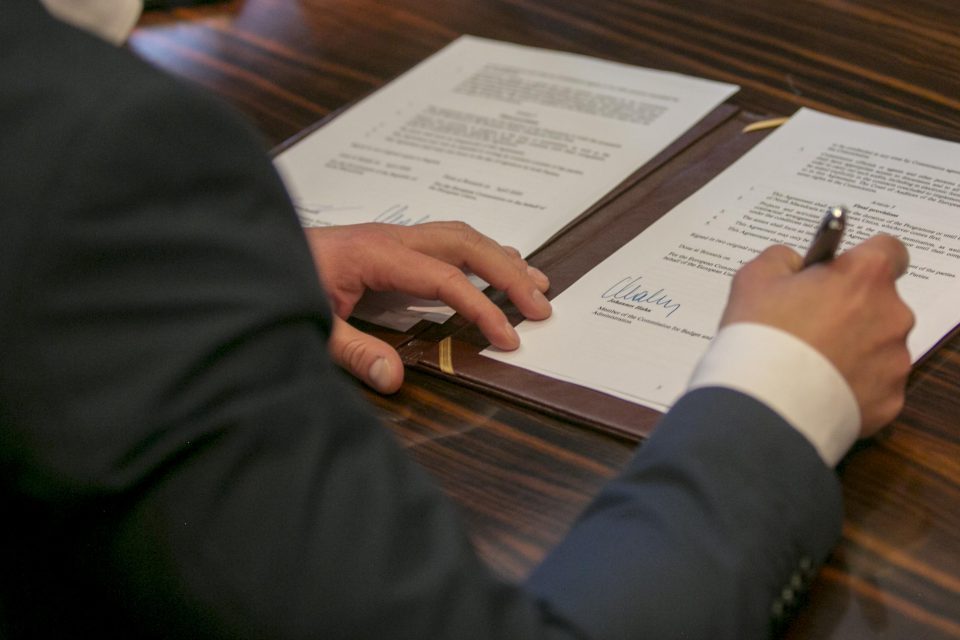Macedonia has joined the European Union’s ISA² programme that supports the development of digital solutions that enable public administrations, businesses and citizens in Europe to benefit from interoperable cross-border and cross-sector public services.
The European Commission and Macedonia have signed an agreement, granting the country access to the EU programme to develop and share solutions for digital public administrations.
Due to the exceptional circumstances, the agreement was signed by European Commissioner for Budget and Administration, Johannes Hahn and the Minister of Information Society and Administration of Macedonia, Damjan Mancevski, in a digital signature ceremony using video conference.
The country will share and develop own IT solutions with other countries as well as to develop new standards and technologies in this field thus being able to give our contribution. This programme is designed for EU member states, but an exception was made allowing our country as a candidate country to be an active member, Mancevski said during video conference.
He said that the financial contribution of Macedonia in respect of its participation in this programme is less than the annual costs we pay for joining the TESTA-ng network.
After completing this programme, it will be transformed into an even larger program called Digital Europe, which will deal with the bigger picture of digitalization in the European Union and will discuss and adopt future standards and guidelines for digital agenda development. Macedonia will actively participate in defining the future solutions and standards in this field, which we will further implement and apply.
European Commissioner for Budget and Administration, Johannes Hahn said: “It fills me with joy to be able to welcome Macedonia to our programme for digital public administrations, an essential building block in connecting our societies. After last week’s endorsement of the opening of the EU accession negotiations with Macedonia, this is a concrete achievement, showing our ever-closer links as we advance on the path to EU membership.”




Comments are closed for this post.